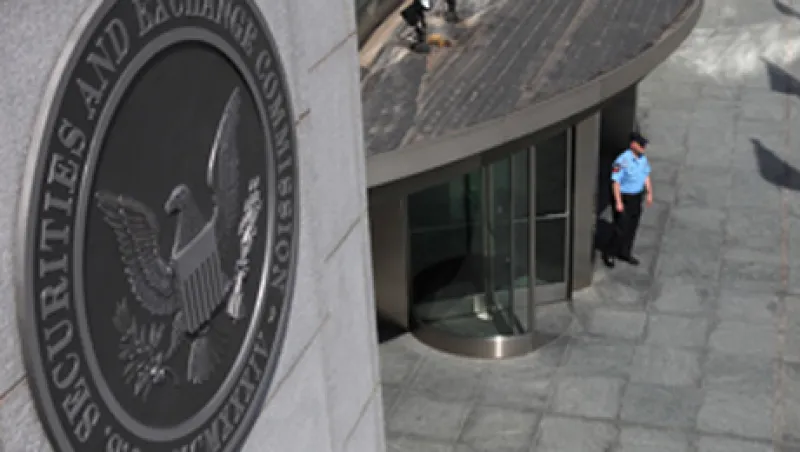If the rash of legal cases involving hedge funds over the past six weeks or so were violent crime instead of financial crime, there would be near panic in the streets. Believe it or not, in the last three weeks or so, 15 people at 13 firms were in the news over some legal action, either involving a hedge fund, a phony hedge fund or an expert networking firm doing business with a hedge fund.
Several of the recent legal cases are new ones while others are new developments in older cases. Several involve frauds at fledgling hedge fund wannabes.
The recent rash of legal developments are further reminders that after operating below the radar, hedge funds and their related activities continue to be squarely in the cross-hairs of regulators.
Two of the cases are related to two individuals associated with expert networking firm Primary Global Research as part of the government’s widening insider trading case.
For example, on Tuesday James Fleishman, an executive with Primary Global, was convicted of conspiracy and wire fraud in connection with a scheme to provide confidential information, including material, nonpublic information to the firm’s clients, including hedge funds.
Earlier this month Don Ching Trang Chu, a former consultant at Primary Global, was sentenced to two years of probation for providing illegal inside information to hedge fund clients. He earlier pleaded guilty to conspiracy to commit securities fraud and conspiracy to commit wire fraud.
Meanwhile, two figures from Galleon Group were sentenced for their roles in the widespread insider trading scandal. Former Galleon trader Zvi Goffer on Wednesday was sentenced to 10 years in prison for his role in the broad insider trading scandal. In June he was convicted of all 14 counts of conspiracy and securities fraud.
On August 31, Craig Drimal, a former trader with Galleon was sentenced to 66 months in prison for his role in an insider trading scheme. He also was sentenced to three years of supervised release, and ordered to forfeit $11 million and pay a $600 special assessment fee.
He had pled guilty to five counts of securities fraud and one count of conspiracy on April 26, 2011.
Some people committed audacious frauds in the name of a hedge fund they did not have.
This week, for example, Kenneth Marsh, who led a $20 million fraud at a boiler-room operation called Gryphon Holdings, was sentenced to eight years in prison. He had pled guilty in April to one count of securities fraud. Gryphon claimed it had a $1.4 billion hedge fund. “In truth, Gryphon did not operate, manage or advise any hedge fund, let alone one with over a billion dollars under management,” the government stated.
In another criminal case, HedgeWeek reported that the Grand Court of the Cayman Islands recently found two directors of a now-defunct hedge fund -- Stefan Peterson and Hans Erkstrom -- guilty of willfully neglecting their duties and fined each of them $111 million. Weavering Macro Fixed Income Fund, a macro fund founded by Swedish-born financier, Magnus Peterson, was incorporated in April 2003 and collapsed in 2009 after the fund failed to meet investors’ redemption requests, according to the report.
The fund was put into liquidation shortly after the directors and professional service providers discovered that a high proportion of the assets on its balance sheet were fictitious, according to a court document.
“I am satisfied that the Macro Fund’s loss caused by the Directors’ willful neglect or default is at least US$111 million,” states Justice Andrew J. Jones in a court document.
In another criminal case, Anthony J. Klatch II, senior managing director and chief investment officer of hedge fund TASK Management, was accused of cheating investors out of most of the $2.3 million they gave him in 2009 and 2010. Klatch pleaded guilty earlier this month after being arrested in August.
In a related civil case, the Commodity Futures Trading Commission (CFTC) obtained an emergency order freezing the assets of Klatch and American Private Equity, LLC as well as three commodity pool operators controlled by Klatch, ARM Capital Management, LLC and TASK Capital Management, LLC and Vigilant Capital Management, LLC. The order stemmed from a CFTC enforcement action originally filed under seal on July 27 charging them with fraudulently soliciting at least 62 individuals to invest at least $11.3 million in three commodity pools that Klatch controlled. The defendants were also charged with misappropriating over $2.1 million from the pools.
In another criminal case, on September 9 James Davis Risher pled guilty to one count of mail fraud, one count of money laundering, and one count of engaging in an “illegal monetary transaction.” More specifically, he pled guilty to, among other things, defrauding investors and obtained money and property by means of materially false and misleading statements.
In a civil action related to a recent high-profile criminal case, last week former SAC Capital trader Donald Longueuil agreed to pay $353,000 to settle civil insider-trading charges. Remember, in July he was sentenced to 2 ½ years in prison after pleading guilty to criminal charges.
In a civil case, the SEC alleged from January 2007 through July 20 I 0, Risher and Daniel Joseph Sebastian operated a Ponzi scheme and raised about $22 million from more than 100 investors nationwide and in Canada. Many of these investors were Florida teachers and retirees. The SEC said the pair operated a private fund marketed under the names “Managed Capital Fund,” “Safe Harbor Private Equity Fund,” and “Preservation of Principal Fund.”
“Risher and Sebastian represented to investors the Fund would only be used for investments in equities through a FINRA-regulated clearinghouse,” the SEC stated in its complaint. “In reality, Risher invested only a fraction of investor funds in equities through a broker-dealer. Instead, he misappropriated the majority of the money for personal use.”
Among civil cases, on September 16, the Commission issued an Order to schedule a hearing before an Administrative Law Judge to determine whether earlier allegations against Vinayak S. Gowrish are true, to provide Gowrish an opportunity to dispute the allegations, and to determine what, if any, sanctions are appropriate.
The Division of Enforcement earlier this year alleged that from December 2006 through May 2007, Gowrish, an associate at TPG Capital, L.P. misappropriated material nonpublic information from his employer in connection with TPG’s negotiations to acquire Sabre Holdings, TXU and Alliance Data Systems. The complaint also alleged that Gowrish tipped the confidential acquisition information to his long-time friend, Adnan Zaman, who in turn, tipped the information to their two friends, Pascal S. Vaghar and Sameer N. Khoury.
Also in September, the SEC announced it had settled civil charges with Roy Scarboro, founder, owner, and president of Capital Asset Management Group, LLC, an unregistered investment adviser that served as the general partner of Capital Asset Management Fund, L.P. Under the deal, Scarboro was barred from associating with any broker, dealer, investment adviser, municipal securities dealer, municipal advisor, transfer agent, or nationally recognized statistical rating organization.
The civil case stems from Scarboro’s December 3, 2010, guilty plea to one count of making false statements to the FBI, one count of securities fraud and one count of money laundering. He had pleaded guilty to, among other things, inducing six investors to invest over $650,000 with CAMF. During the period in question CAMF allegedly suffered dramatic investment losses, and Scarboro misappropriated at least $50,000 of investor funds for his personal use. “In order to conceal CAMF’s losses and his misappropriation of investor funds, Scarboro provided investors with monthly account statements showing fictitious investment returns,” the SEC noted.
In another civil case, Anthony Scolaro, a portfolio manager at Diamondback Capital Management, LLC, settled civil proceedings with the SEC, which alleged Scolaro was tipped material, nonpublic information concerning the acquisition of Axcan Pharma. Scolaro allegedly then traded in the securities of Axcan based on that information.
Under the settlement, Scolaro agreed to pay disgorgement of $125,980, prejudgment interest of $14,420, and a civil penalty of $62,945. In addition, Scolaro consented to the entry of an SEC order barring him from association with any investment adviser, broker, dealer, municipal securities dealer, municipal advisor, transfer agent, or nationally recognized statistical rating organization.
Diamondback agreed to disgorge $962,486 in gains resulting from Scolaro’s trades, plus prejudgment interest of $110,246.
This case also stemmed from an earlier criminal case. On November 19, 2010, Scolaro pled guilty to one count of securities fraud and one count of conspiracy to commit securities fraud.
On August 31, the SEC announced it froze the assets of a Chicago-area money manager and his hedge fund advisory firm that the SEC charged with lying to prospective investors in their startup quantitative hedge fund. The SEC alleged that Belal Faruki and his advisory firm, Neural Markets, LLC., presented themselves as managers of a start-up quantitative hedge fund with a history of successful trading.
According to the complaint, since early 2010 Faruki and Neural Markets solicited several highly sophisticated individuals to invest in the “Evolution Quantitative 1X Fund,” claiming the hedge fund used a proprietary algorithm to carry out an arbitrage strategy involving trading in liquid ETFs. The regulator alleges they defrauded at least one investor out of $1 million.
According to the complaint, Faruki and Neural Markets lied throughout the solicitation process about their performance track record; about the existence of other wealthy investors in the fund; that Faruki had invested his own money in the fund; and that Faruki and Neural Markets had engaged a top-tier auditor to assist in preparing quarterly and annual financial statements for the fund.







